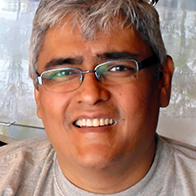 It was estimated that around half-a-million Malaysians participated in the Bersih 4 rally recently.
It was estimated that around half-a-million Malaysians participated in the Bersih 4 rally recently.
Not all of them were able-bodied persons.
I know of at least two dozen disabled Malaysians who took part in the event.
All of them were physically handicapped.
Most were in wheelchairs, whilst the others came with their crutches and walking sticks.
I am sure that there must have been others too with less visible disabilities, like the blind and deaf, who must have also joined in the giant rally.
I talked to some of those whom I knew in wheelchairs last week and asked them what such an experience was like for them – especially as persons with disabilities attending a mammoth rally and marching with tens of thousands of non-disabled people.
Beatrice Tan (not her real name) initially had mixed feelings about whether or not to take part in the weekend gathering.
She was especially concerned about the warning and threats of arrests issued by the authorities as the days got nearer.
The wheelchair-user finally decided to put her fears aside when the event arrived.
You see, Tan had another and more personal – and critical – agenda and mission to fulfil.
She wasn't only fighting for clean and corrupt-free leaders.
As a disabled Malaysian, she wanted to show herself to the world in her wheelchair of the many basic issues that people like her had to struggle with each day of their lives.
Problems such as not being able to get a job because of the strong discrimination able-bodied employers have about disabled people.
Beatrice also wanted the world outside to know that life for the disabled had become an even more terrible struggle since the goods and services tax (GST) was introduced in April with no waivers for the handicapped.
Not only have food and clothing become even more difficult to achieve, but even medical aids and necessities like wheelchairs and special cushions have increased by hundreds to thousands in ringgit value.
Even though she had a real fear of getting arrested, she told me, should that happen, it would have been an unexpected "opportunity" to bring the world's attention to disabled persons' plight in our country which is still largely ignored by our politicians.
Tan joined a dozen other disabled friends and took the LRT to the rally.
She had to first ride her hand-powered motorcycle to the KTM commuter station and later, connect with the LRT to her final destination.
Would she find a helping hand in the station, or would she be left to fend for herself on her own?
Upon arrival, Tan was pleasantly surprised to find scores of strangers with yellow T-shirts who were ever ready to help her.
Even without her asking for help, they came forward to carry her wheelchair out of her three-wheeler's side car and then help her sit in her wheelchair.
It didn't end there.
A kind able-bodied samaritan went out of his way to buy her train tickets at the station.
The last thing he told her before parting was, "I salute you for what you are doing despite with your difficulties – people like you put many people like us to shame!"
P. Mariammah (not her real name) experienced the same love and warmth from total strangers when she, too, participated in the peaceful rally with her group of a dozen people in wheelchairs.
"The welcome my group and I got was simply overwhelming.
"People started applauding us the moment they saw us coming in our wheelchairs and walking aids – and they were total strangers!"
Despite the enormous numbers, the crowds were miraculously conscientious and aware of the disabled participants among them.
It was amazing how they in large numbers were able to gently make way for handicapped persons so that they could get to the front.
They did this each time they saw someone with a disability approaching.
The crowds were even at times seen "fighting with each other" to take turns to push their wheelchairs and ever ready to assist them when necessary.
For instance, when it rained, they made sure that the wheelchair users were led to sheltered spots to keep them as dry as possible.
Some even went to the extent of paying for their lunch and drinks that day.
Both Tan and Mariammah said the Bersih crowds made the disabled to feel like "heroes for the day".
For many of them the entire "street-party-like atmosphere" was therapeutic and positive.
It was nothing like they had ever experienced in their lives.
It was so much more meaningful for them to be out with caring Malaysians than to remain locked up in the homes and away from the public eye.
"For once I didn't feel like a 'sick patient' but as an individual with equal rights to voice them out like the able-bodied," said Mariammah. – September 7, 2015.
* This is the personal opinion of the writer or publication and does not necessarily represent the views of The Malaysian Insider.


Comments
Please refrain from nicknames or comments of a racist, sexist, personal, vulgar or derogatory nature, or you may risk being blocked from commenting in our website. We encourage commenters to use their real names as their username. As comments are moderated, they may not appear immediately or even on the same day you posted them. We also reserve the right to delete off-topic comments